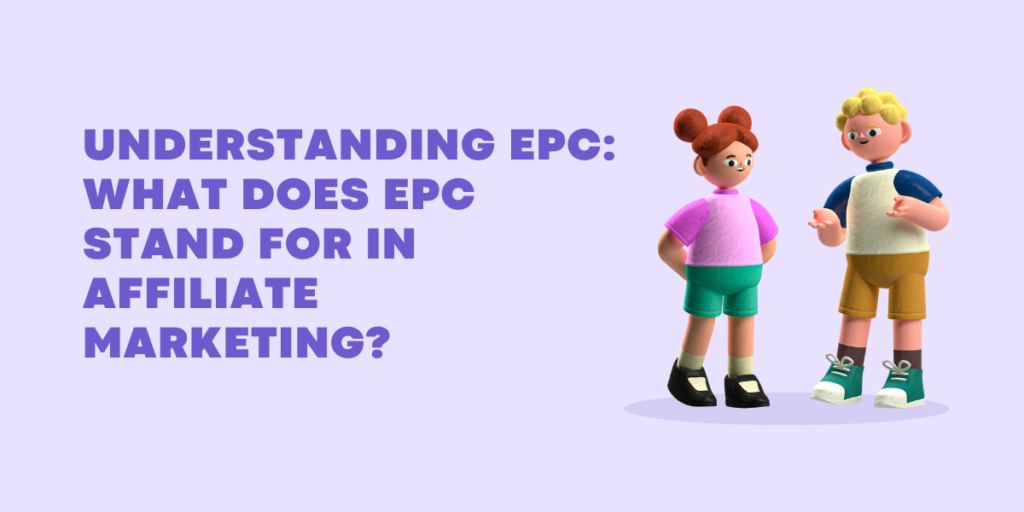What Is Affiliate Marketing?
Affiliate marketing is a performance-based marketing model where individuals or companies (referred to as affiliate marketing companies or publishers) promote products or services of other companies and earn commissions from every successful referral or sale they generate.
Affiliates share advertisements or links to products on their platforms, and when customers click on the links and make a purchase, the system tracks the conversions and provides commissions to the affiliates. Affiliate marketing is a popular online marketing strategy that allows companies to expand their reach and increase sales through the efforts of independent marketers.
In an affiliate network marketing arrangement, affiliate marketers promote the products or services of advertisers through various channels such as websites, blogs, social media, email marketing, or paid advertising. They include unique affiliate links or tracking codes in their promotional materials to track the referrals or sales they generate.
When users click on the affiliate links and complete the required actions (such as making a purchase or filling out a form), the affiliate company is credited for the referral and earns a commission based on the agreed-upon commission structure. Commissions can be a percentage of the sale value, a fixed amount per referral, or other predetermined criteria.

https://en.wikipedia.org/wiki/Affiliate_marketing
What Does EPC Stand For In Affiliate Marketing?
In the context of affiliate marketing, EPC stands for “Earnings Per Click.” It is a metric used to measure the average revenue generated per click on an affiliate link. EPC provides valuable insights into the profitability and effectiveness of affiliate marketing campaigns.
To calculate EPC, the total revenue generated from affiliate commissions is divided by the total number of clicks on the affiliate links. For example, if an affiliate company earns $200 in commissions from 500 clicks, the EPC would be $0.40 per click.
EPC helps affiliate marketers assess the performance of their campaigns, compare different offers or products, and make data-driven decisions to optimize their strategies. It allows marketers to identify which affiliate marketing programs or links are generating higher revenue and focus their efforts on projects that offer better return on investment. Increasing EPC is often a goal for affiliate marketers as it leads to higher profits and more successful affiliate marketing campaigns.
Benefits Of Knowing Your Epc
Understanding your EPC (Earnings Per Click) in affiliate marketing has several benefits that can help you optimize your strategies and maximize profits. Here are some key advantages:
- Performance Evaluation: EPC provides a clear metric to evaluate the performance of your affiliate marketing campaigns. By understanding the income you earn per click, you can assess the effectiveness of different activities, promotional methods, or affiliate products. It helps you determine which activities generate the most revenue and identify areas that may need adjustment or further optimization.
- Profitability Assessment: EPC helps you determine the profitability of your affiliate marketing efforts. By comparing the EPC of different activities or affiliate products, you can identify activities or products that generate higher income per click. This allows you to prioritize and focus on the most lucrative opportunities, ensuring effective allocation of your time and resources.
- Decision Making: Understanding your EPC enables data-driven decision making. You can make informed choices based on actual performance data rather than relying on guesswork or assumptions. For example, if you have multiple affiliate products to promote, you can compare their EPCs and choose products with higher income potential. This helps you allocate your marketing efforts and resources in a way that maximizes returns.
- Activity Optimization: EPC serves as a valuable benchmark for optimizing your affiliate marketing activities. By monitoring your EPC over time, you can identify trends and patterns that indicate areas for improvement. For instance, if you notice a decline in EPC, you can investigate potential causes such as market changes, product relevance, or conversion rates. This allows you to adjust your activities, positioning, or promotional strategies to enhance your EPC and overall performance.
- Partner Selection: EPC can help in selecting suitable affiliate partners or programs. By considering the EPC offered by different affiliate networks or merchants, you can evaluate the profit potential of their affiliate programs. This assists you in choosing partners that offer higher EPC, increasing your opportunities to generate more income from your affiliate marketing efforts.
- Goal Setting and Tracking: EPC provides a measurable goal for your affiliate marketing activities. You can set EPC targets based on the income or return on investment (ROI) you desire and track your progress in achieving those targets. It serves as a performance benchmark, helping you measure the success of your marketing campaigns and make adjustments as needed.
Strategies For Maximizing EPC
To maximize your EPC (Earnings Per Click) in affiliate marketing, consider implementing the following strategies:
- Select High-Converting Affiliate Products: Choose affiliate products with a proven track record of high conversion rates. Look for products that have demand, provide value to your target audience, and have a good reputation. By promoting products with higher conversion rates, you increase the chances of earning more income per click.
- Optimize Your Promotion Channels: Focus on optimizing the channels through which you promote affiliate products. This includes your website, blog, social media platforms, email marketing, and any other relevant channels. Optimize your content, landing pages, and call-to-action language to improve conversion rates and encourage more clicks.
- Target the Right Audience: Understand your target audience and tailor your marketing efforts to effectively reach them. Conduct market research to identify their needs, preferences, and pain points. Create content and promotional strategies that resonate with them, increasing the likelihood of generating clicks and conversions.
- Create Engaging and Compelling Content: Content plays a crucial role in driving clicks and conversions. Develop high-quality, valuable content to attract your audience and encourage them to take action. Use persuasive copywriting techniques, including relevant visuals, and provide clear and compelling call-to-action language to drive clicks.
- Implement Effective SEO Strategies: Optimize your website and content for search engines to increase visibility and organic traffic. Conduct keyword research and incorporate relevant keywords into your content, meta tags, and descriptions. By ranking higher in search engine results, you can attract more organic clicks and potentially increase your EPC.
- Build Trust and Authority: Establish yourself as a trustworthy authority in your niche market. Provide valuable content, demonstrate expertise, and engage with your audience through social media, comments, and forums. Building trust and credibility can enhance click-through rates and conversion rates.
FAQs
What does EPC mean on ClickBank?
In the ClickBank affiliate network, EPC (Earnings Per Click) refers to a crucial metric that measures the performance and profitability of your affiliate marketing efforts. Specifically, it represents the average earnings you generate for each click driven through your affiliate links.
Why does EPC stand for?
The acronym EPC commonly stands for “Electronic Power Control.” It is a term used in the automotive industry to describe a system that regulates and controls the power output of the engine. The EPC light, which stands for Electronic Power Control, is a dashboard warning light that alerts the driver to a potential issue with the engine’s performance.
What is 3 month EPC in affiliate marketing?
A 3-month EPC (Earnings Per Click) is a metric used in affiliate marketing to measure the average earnings generated per 100 clicks by affiliates participating in a merchant’s program over a period of three months. It provides insights into the performance and profitability of the affiliate program.



